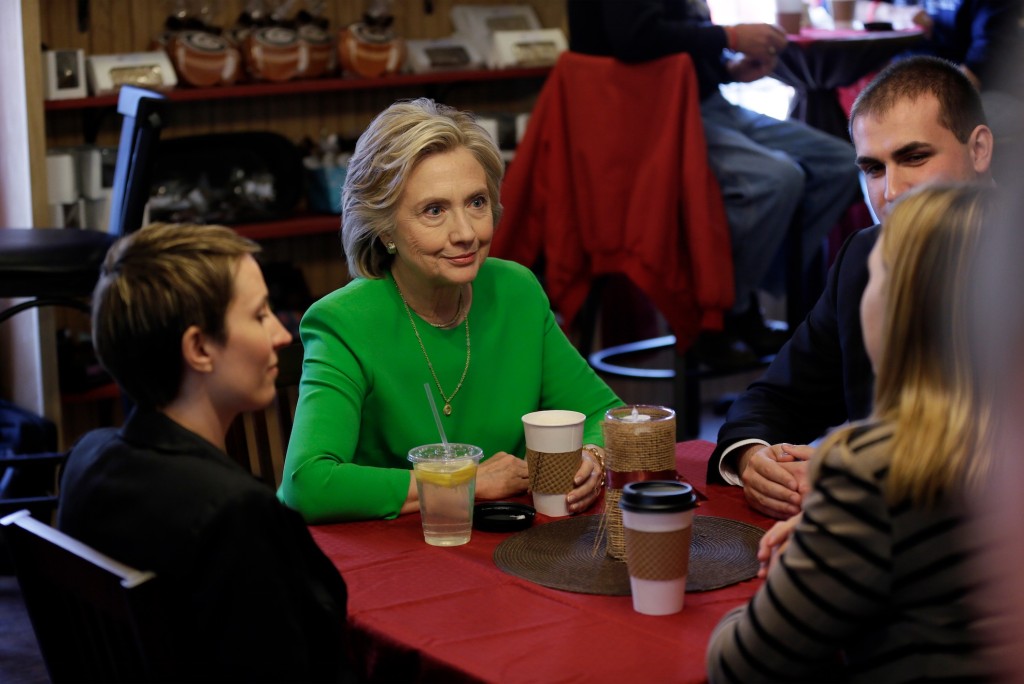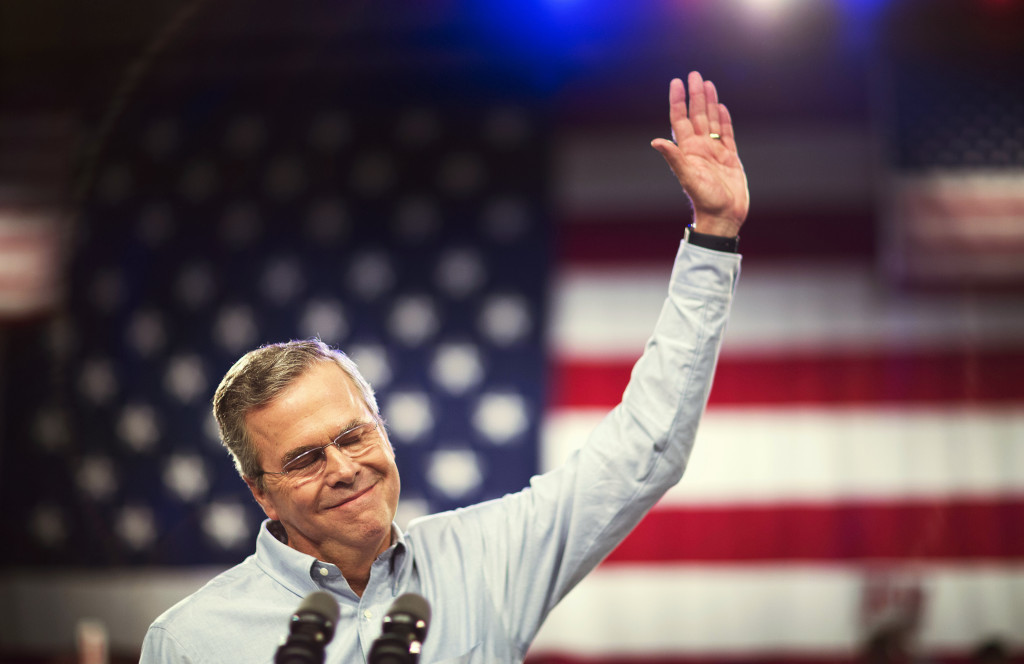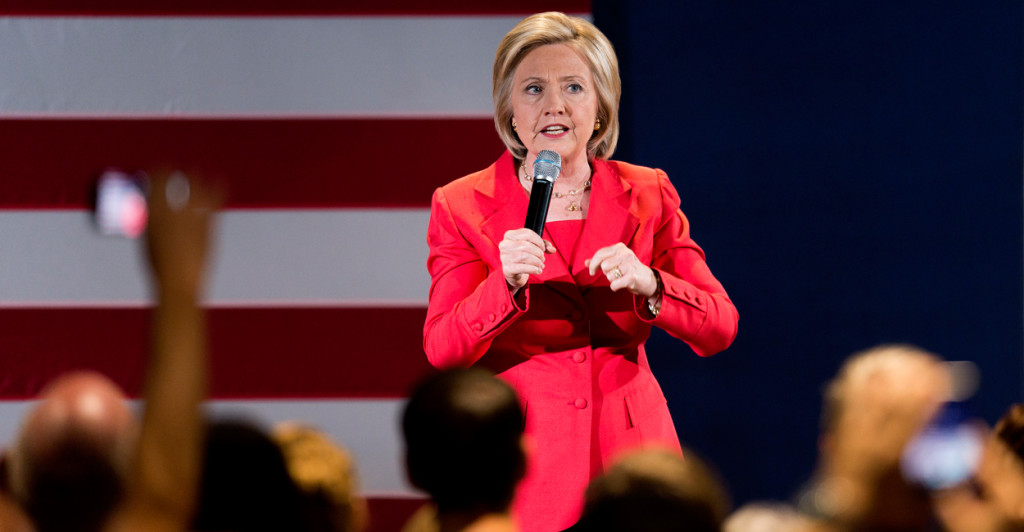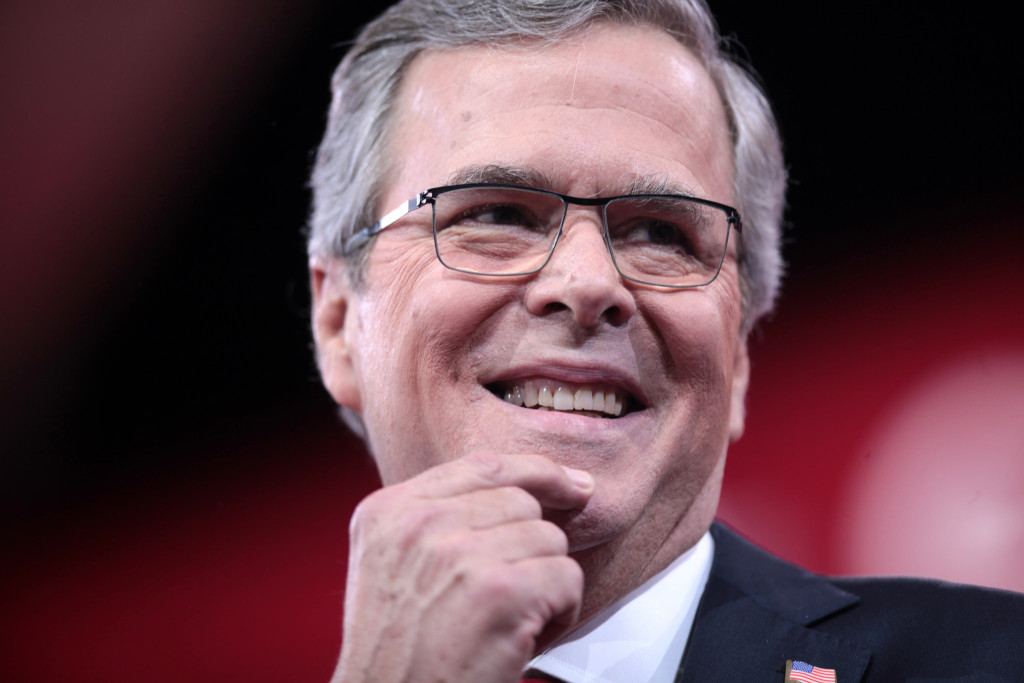Hillary Clinton building vast network of campaign staff, volunteers

Scott Hogan wanted to know why his batch of potential volunteers was “ready for Hillary.” The campaign staffer didn’t get the answer he wanted, but it was enough to get the conversation started. “To tell you the truth, I like Bernie Sanders for just his honesty, but I don’t think he’s electable,” said Gina Casey, 59, sitting at a conference table at a Democratic Party office. “So, I’m trying to love Hillary and I need to know more.” A former gun control activist hired by Hillary Rodham Clinton‘s presidential campaign to organize the reliably Democratic state, Hogan made the pitch for his boss over Sanders, the independent Vermont senator mounting a longshot challenge for the Democratic nomination. “This campaign is about you,” Hogan told Casey and a handful of other Democrats gathered on a hot Tuesday night in this small southern Minnesota city. “It’s not about me. It’s not about Hillary. It’s about how best to move this country forward.” In a presidential race likely to include more than 20 candidates, none has an operation like Clinton. In just eight weeks since announcing her plans to run for president, Clinton has deployed an army of roughly 100 organizers such as Hogan nationwide and opened 15 offices in early-voting states – far more than any other candidate of either party in the 2016 contest. The overwhelming favorite for her party’s nomination, Clinton doesn’t necessarily need the volunteers now. But worried she will lack the power of a competitive primary to energize the core group of supporters she will need for the general election, Clinton’s team has set off on an early hiring spree that’s all but unprecedented. “You can’t get to a point where the polls are tight and say, `Oh, wow, we need to do some organizing,’” said Marlon Marshall, Clinton’s director of state campaigns and political engagement. “These organizing relationships will create a sense of urgency to let people know why we have to do this work now.” In Iowa, Clinton now has at least 27 paid organizers – three times as many as any of the dozen or so Republicans in the race. Her campaign has hired at least one staff member in every state, the District of Columbia and the U.S. territories. She has two regional directors in California and has even put one person on the payroll in Wyoming, a state that has not voted for a Democratic nominee in more than 50 years. The effort isn’t cheap: Senior campaign aides have set a goal of raising $100 million to pay for Clinton’s primary campaign. While Clinton has so far limited her campaign appearances to the first four states to vote and mostly private fundraisers, her campaign has organized 320 house parties – attracting almost 11,000 people in the 46 other states and the District of Columbia. This weekend, the day after Clinton gives the first major speech of her campaign, her appearance at an event in Iowa will be streamed to a party in every congressional district nationwide. “At this point, it’s more about finding people and getting them involved then convincing them to back Clinton,” said Hogan, as the group of students, retirees, and local activists began to filter into the office Tuesday night. The meeting was the fourth the Indiana native had organized in the state, including one in Minneapolis that attracted 200 participants. “There’s benefits to a place like Minnesota,” he said. “It’s got a ton of Democratic energy and people are really engaged.” Clinton’s campaign staff takes great pains to keep a focus on the primary campaign, insisting they take nothing for granted despite a lead in early polls over Sanders and a few others that often approaches 50 percentage points. Should the Democratic race become competitive, Minnesota – voting on Super Tuesday in the first set of primaries after the first four states – could be decisive. But if not, and Minnesota appears likely to vote as it has since 1972 for the Democratic nominee, the supporters Hogan is organizing now will become a valuable resource to raise funds, make calls and travel to neighboring battleground states such as Iowa and Wisconsin. The staff working now in deep blue states such as Minnesota will be redeployed to battleground states at the end of June, with the goal of having built an engaged volunteer networks to organize small dollar fundraisers and make sure Clinton is represented at local events, like parades and festivals, into the fall. Clinton aides said the early investment will pay dividends in the final weeks of the campaign. Data analyzed by President Barack Obama‘s campaign showed a direct correlation between supporter enthusiasm in the last six weeks before the election and when local operations began in their area, according to former staffers. “The earlier you start, the larger your volunteer structure will be the last two weeks or last month of the campaign, which is ultimately when that investment pays off,” said Mitch Stewart, who oversaw battleground states for Obama’s campaigns and advised the pro-Clinton super PAC Ready for Hillary. In Mankato, the gathering included brainstorming on ways Clinton could spread her message. At one table, a group of women had a suggestion for Hogan: Farmfest. Before Tuesday, they hadn’t considered the idea they should put together a booth for Clinton at the three-day agricultural trade show in August, a must-attend event for political candidates in this part of the state. “Next year will be the more important time to be out there,” said Lori Sellner, a 46-year-old from Sleepy Eye, Minnesota. “This is just earlier than we’ve seen before.” Republished with permission of The Associated Press.
For half a sentence, Jeb Bush is an official 2016 candidate

Over and over again, Jeb Bush has said he’s still thinking about whether to run for president. But for half a sentence Wednesday, Bush let on it’s a decision he’s already made. And he’s in the race for the White House. Talking with reporters after a town hall in Reno, Nevada, the former Florida governor said, “I’m running for president in 2016 and the focus is going to be about how we, if I run, how do you create high sustained economic growth.” Bush noted several times in the same conversation he is still thinking about whether to run and caught himself before ending the sentence in which he said he was running by adding that caveat. Earlier in the same exchange, when asked about his brother, former President George W. Bush, he said, “If I run, it will be 2016, not 2000.” But the caveat is important. It’s one Bush has uttered countless times since January, traveling to early-voting and battleground states and meeting voters. It’s what has allowed him to raise limitless money to fuel a super PAC expected to complement his campaign once he officially announces his candidacy. Bush’s team had nothing to say about his slip. Once a White House hopeful launches a formal campaign, he or she can no longer coordinate activities with a super PAC. That’s why people who are running a presidential campaign in all but name hold off on declaring their intentions until the time suits them — even as they make speeches, meet donors and undertake other activities that are clearly the work of a presidential contender. Bush’s super PAC, Right to Rise, is expected, under the guidance of longtime adviser Mike Murphy, to conduct many of the functions a candidate’s campaign would — but without coordination with Bush or the federal contribution limits that go with a campaign. At the event in Reno, the former Florida governor again refused to say whether he would have proceeded with the 2003 invasion of Iraq if he’d been in brother and former President George W. Bush’s shoes. Anyone in hindsight “would have made different decisions,” he told reporters. “There is no denying that. But to delve into that and not focus on the future, I think is where I need to draw the line.” Pressed by a voter at the town hall-style meeting about the war, Bush said: “Talking about the future is more than fair. Talking about the past, saying how would you have done something after the fact is a little tougher, and it doesn’t necessarily change anything.” Bush later noted that such voter encounters stand in contrast to what he described as Democratic candidate Hillary Clinton‘s campaign. “You can’t script your way to the presidency, put yourself in a protective bubble and never interact with people — only talk with people that totally agree with you,” Bush said. “That’s not going to work. That’s not very sincere.” Republished with permission of the Assoociated Press.
Super PACs rise in influence in 2016 campaign

When Hillary Rodham Clinton takes the stage at fundraisers thrown by a group that wants to elect her president, she’s not presented as a White House candidate. She’s a “special guest.” When Jeb Bush raises money for a group preparing to run major parts of his all-but-certain presidential campaign, he doesn’t ask for the cash himself. And the hundreds of millions these groups will raise? They have to spend it without talking strategy with the candidates and campaigns they support. The groups are called super PACs, and their influence in selecting the next president will be without precedent. Born out of two Supreme Court decisions in 2010, they are governed by rules some see as a game of winks and nods, enforced by an agency bedeviled by partisan gridlock. As with most things in Washington, there’s not even agreement on whether they are a problem to solve, or are a solution to celebrate. “What’s really going on largely is a breakdown of the enforcement system of the campaign finance laws,” said Craig Holman of the left-leaning consumer group Public Citizen. “The Federal Election Commission is just broken.” Countered David Keating of the right-leaning Center for Competitive Politics, “I think this is overblown. The line has been drawn: It’s the First Amendment. So if people want to speak, let them.” The primary benefit for campaigns of the super PACs is that they can raise and spend unlimited amounts of money to advocate for and against candidates, with only a few rules holding them back. Among the rules is a ban on campaigns and super PACs working together. They cannot discuss political strategy or share key information such as internal polling. While candidates can attend super PAC events, they cannot technically ask for the unlimited donations that make the groups such a powerful force. “Most of these super PACs that are going to be spending millions of dollars, I think they have a good understanding of what the law is,” Keating said. But even should they break the rules, there are questions about what price they might pay. The six commissioners of the Federal Election Commission are split evenly between Republicans and Democrats, and they have only once cited someone for breaking the rules. In February, the campaign manager for a failed Virginia Republican congressional candidate pleaded guilty to funneling money illegally from a super PAC to bolster his campaign. Clinton has decried the existence of “unaccounted money” in politics and has suggested a constitutional amendment to overturn the case that helped usher in the new system. Yet during a California fundraising trip last week, she took her first steps to embrace Priorities USA Action, a Democratic super PAC that helped support President Barack Obama in 2012. Like other candidates, Clinton cannot legally ask donors to give more than $5,000 to the group. But she can appear as a “special guest.” Her husband, former President Bill Clinton, has headlined Priorities events in the past. On the Republican side, Bush is taking it even further. The former Florida governor is preparing to delegate many of the operations of his expected campaign to his allied Right to Rise super PAC, using the group to produce campaign ads, conduct voter data analysis and run get-out-the-vote efforts. Mike Murphy, one of Bush’s closest political advisers, is expected to lead the super PAC and is intimately involved in Bush’s current operation, where he guides staffing decisions, courts donors and shapes political strategy. Bush takes care to say he’s not yet a candidate, allowing him to work with Murphy and the super PAC in a way that won’t be allowed once he’s in the race. A dozen White House prospects are already benefiting from allied super PACs, frequently led by former political advisers and business partners. For example, Kentucky Sen. Rand Paul will benefit from a super PAC run by his former campaign manager, who is also married to Paul’s niece. Texas Sen. Ted Cruz‘s college roommate is working prominently in a network of four allied super PACs, while a longtime friend and financial backer, Dathan Voelter, is the treasurer. Voelter said the pro-Cruz groups have already raised more than $31 million. During his run for re-election in 2012, Obama never really warmed up to the super PAC world and the group supporting him, Priorities USA Action. He declined to appear at fundraising events even though his opponent, Republican Mitt Romney, frequently attended gatherings held by Restore Our Future, a pro-Romney super PAC. Seeking to succeed Obama in the White House, Clinton and her allies have taken steps recently to strengthen Priorities USA Action. Among them: She will appear at the group’s events and reach out to potential donors, something Obama declined to do. The group is also bringing aboard Guy Cecil, a former staff member of Clinton’s 2008 presidential campaign who remains close to Bill Clinton and previously worked for a firm stocked with longtime Clinton advisers. Republished with permission of The Associated Press.
Jeb Bush preparing to delegate many campaign tasks to super PAC

Jeb Bush is preparing to embark on an experiment in presidential politics: delegating many of the nuts-and-bolts tasks of seeking the White House to a separate political organization that can raise unlimited amounts of campaign cash. The concept, in development for months as the former Florida governor has raised tens of millions of dollars for his Right to Rise super PAC, would endow that organization not just with advertising on Bush’s behalf, but with many of the duties typically conducted by a campaign. Should Bush move ahead as his team intends, it is possible that for the first time a super PAC created to support a single candidate would spend more than the candidate’s campaign itself — at least through the primaries. Some of Bush’s donors believe that to be more than likely. The architects of the plan believe the super PAC’s ability to legally raise unlimited amounts of money outweighs its primary disadvantage, that it cannot legally coordinate its actions with Bush or his would-be campaign staff. “Nothing like this has been done before,” said David Keating, president of the Center for Competitive Politics, which opposes limits on campaign finance donations. “It will take a high level of discipline to do it.” The exact design of the strategy remains fluid as Bush approaches an announcement of his intention to run for the Republican nomination in 2016. But at its center is the idea of placing Right to Rise in charge of the brunt of the biggest expense of electing Bush: television advertising and direct mail. Right to Rise could also break into new areas for a candidate-specific super PAC, such as data gathering, highly individualized online advertising and running phone banks. Also on the table is tasking the super PAC with crucial campaign endgame strategies: the operation to get out the vote and efforts to maximize absentee and early voting on Bush’s behalf. The campaign itself would still handle those things that require Bush’s direct involvement, such as candidate travel. It also would still pay for advertising, conduct polling and collect voter data. But the goal is for the campaign to be a streamlined operation that frees Bush to spend less time than in past campaigns raising money, and as much time as possible meeting voters. Bush’s plans were described to The Associated Press by two Republicans and several Bush donors familiar with the plan, who spoke on condition of anonymity because the former Florida governor has not yet announced his candidacy. “This isn’t the product of some genius thinking,” said a Republican familiar with the strategy. “This is the natural progression of the rules as they are set out by the FEC.” Bush spokeswoman Kristy Campbell said: “Any speculation on how a potential campaign would be structured, if he were to move forward, is premature at this time.” The strategy aims to take maximum advantage of the new world of campaign finance created by a pair of 2010 Supreme Court decisions and counts on the Federal Election Commission to remain a passive regulator with little willingness to confront those pushing the envelope of the law. One reason Bush’s aides are comfortable with the strategy is because Mike Murphy, Bush’s longtime political confidant, would probably run the super PAC once Bush enters the race. Meanwhile, David Kochel, a former top adviser to Mitt Romney‘s campaigns and an ally of Bush senior adviser Sally Bradshaw, would probably be the pick to lead Bush’s official campaign. “Every campaign is going to carefully listen to the lawyers as to what is the best way to allocate their resources and how to maximize them,” said Al Cardenas, former chairman of the American Conservative Union and a Bush adviser. “Nobody wants to relinquish any advantage.” For Bush, the potential benefits are enormous. Campaigns can raise only $2,700 per donor for the primary and $2,700 for the general election. But super PACs are able to raise unlimited cash from individuals, corporations and groups such as labor unions. In theory, that means a small group of wealthy Bush supporters could pay for much of the work of electing him by writing massive checks to the super PAC. Bush would begin a White House bid with confidence that he will have the money behind him to make a deep run into the primaries, even if he should stumble early and spook small-dollar donors, starving his own campaign of the money it needs to carry on. Presidential candidates in recent elections have also spent several hours each day privately courting donors. This approach would not eliminate that burden for Bush, but would reduce it. “The idea of a super PAC doing more … means the candidate has to spend less time raising money and can spend more time campaigning,” said longtime Mitt Romney adviser Ron Kaufman, who supports Bush. The main limitation on super PACs is that they cannot coordinate their activities with a campaign. The risk for Bush is that his super PAC will not have access to the candidate and his senior strategists to make pivotal decisions about how to spend the massive amount of money it will take to win the Republican nomination and, if successful, secure the 270 electoral votes he will need to follow his father and brother into the White House. “The one thing you give away when you do that is control,” Kaufman said. Bush will also be dogged by advocates of campaign finance regulation. The Campaign Legal Center, which supports aggressive regulation of money and politics, has already complained to the FEC that Bush is currently flouting the law by raising money for his super PAC while acting like a candidate for president. Others are on guard, too. “In our view, we are headed for an epic national scandal,” said Fred Wertheimer, president of the pro-regulation group Democracy 21. “We intend to carefully and closely monitor all the candidates and their super PACs, because they will eventually provide numerous examples of violations.” All of the major candidates for president


